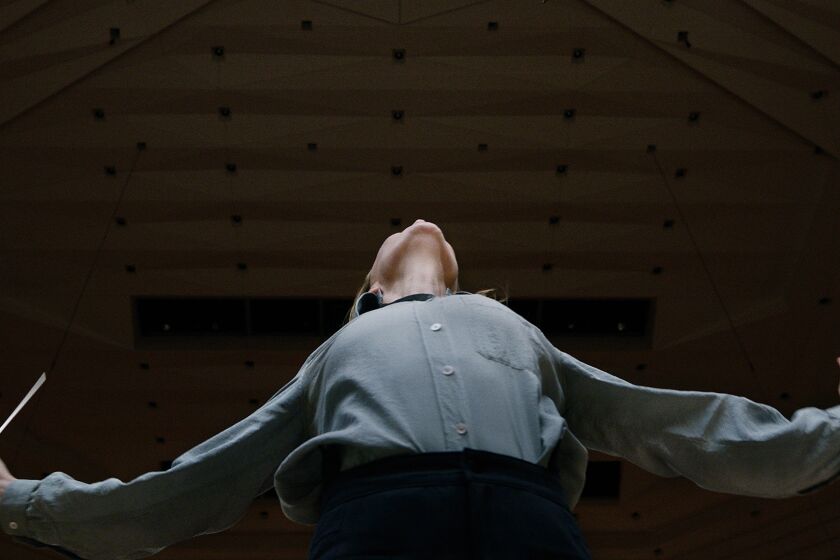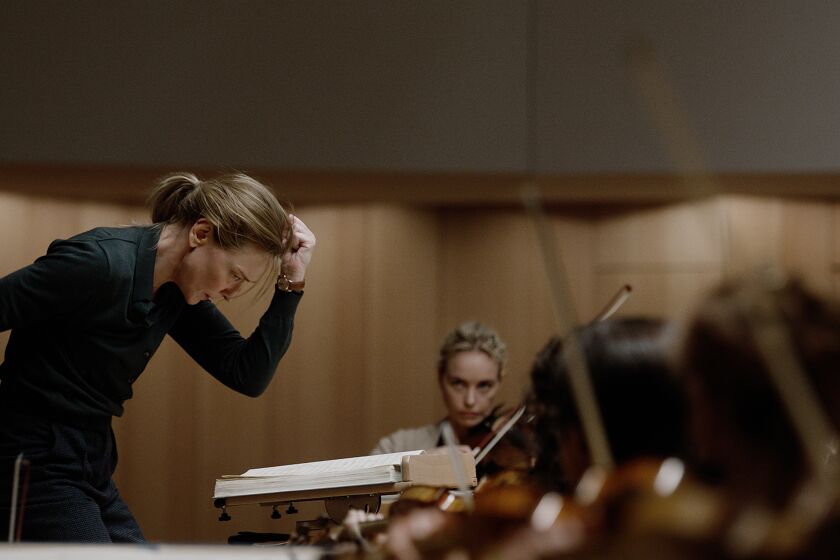Playing conductor in ‘Tár’ was the most terrifying role of Oscar winner Cate Blanchett’s iconic career
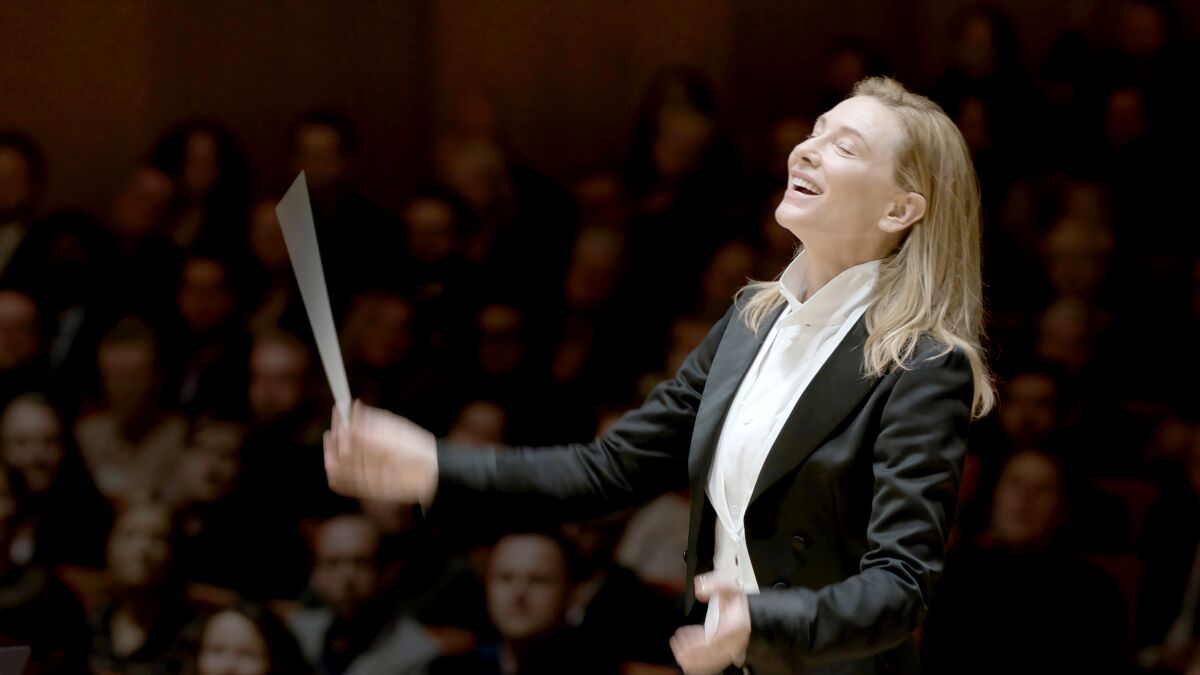
Cate Blanchett has played many formidable characters, rulers who could bring mere mortals to their knees with a single icy stare: Queen Elizabeth I in “Elizabeth,” Galadriel in the “Lord of the Rings” trilogy, the goddess Hela in “Thor: Ragnarok.”
But none compares with the surge of power and fear the actress felt the first time she stood in front of the Dresden Philharmonic orchestra with conductor’s baton on the set of her new film “Tár.”
“Nothing will prepare you for the moment when you stand on the podium, which was terrifying, and give the downbeat and start making that sound with an orchestra of that size,” says Blanchett, who plays Lydia Tár, a brilliant but flawed classical conductor in writer-director Todd Field’s psychological drama. “I will never forget that moment.”
“This film is not really about classical music, it’s not about conducting — it’s about power,” said Field, who returns to feature directing after 16 years. “Music just happens to be the world that we found this character in.”
Music is the wellspring of Tár’s power and the very air that she breathes, and faithfully capturing the passion and artistry of her musical life was critically important to Field and Blanchett.
“We’ve all seen films about industries, the film industry being one of them, where we say, ‘Well, that’s cute but that’s not really how it is,’” says Field, who consulted with conductor John Mauceri to make sure the smallest details were accurate. “My fear was doing sort of toy town version of this milieu and having people who are in the trade say, ‘Bull—, that’s not what it is.’”
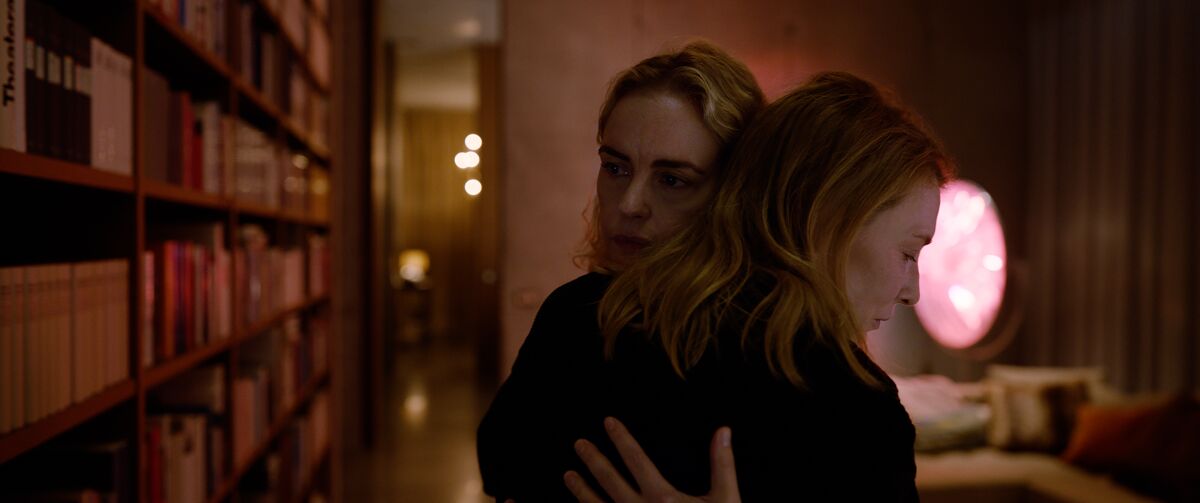
The narrative is constructed around two canonical classical works — Gustav Mahler’s Fifth Symphony and Elgar’s Cello Concerto — which are interwoven with haunting score by Icelandic composer Hildur Guðnadóttir.
With Field insisting on absolute authenticity, all of the music performed in the film, which co-stars German actress Nina Hoss as Tár’s violinist wife and concertmaster, was played live in front of the camera.
To prepare for her role, Blanchett not only learned how to conduct but also how to speak German and play piano.
“I learned piano as a girl but that was a very long time ago now,” says Blanchett, who is already considered a veritable lock for an Oscar nomination. “With each subsequent pregnancy, I kept saying, ‘I must pick it up.’ But, being terribly lazy, it’s not until it’s demanded on me from work that I actually learn a new skill.”
For the scenes in which Tár is conducting rehearsals for an upcoming performance of Mahler’s Fifth, Blanchett and Field strove for the greatest possible accuracy.
“I didn’t want to stand up there doing some kind of trick,” Blanchett says. “I wanted to be able to look at the score and be referring to the exact note and dynamic marking. I didn’t want to have to fake it because those musicians weren’t faking it. That would have been profoundly lazy. But also, where’s the joy in that? If I was never going to have that experience again, I wanted to try and get as close to the thing as possible.”
Field is aware that spending two and a half hours immersed in the world of classical music could be intimidating for many viewers, who could find themselves lost in the film’s references to esoteric musical terminology and past conductors like Wilhelm Furtwängler.
The film opens with long, dialogue-heavy scene in which Tár is interviewed onstage by New Yorker writer Adam Gopnik, throwing the audience into the deep end with crash course in the art of conducting.
“You’re dealing with a part of our so-called high culture that is intimidating by design,” says Field, who was a budding jazz musician before he turned to acting and then directing. “When you hear a beautiful piece of classical music on the radio, why is it that you have to pull over and write down 6.93 squared to figure it out? It’s the same way the class system was designed to where you wouldn’t understand how to score tennis so the lower classes wouldn’t play it.”
For Field, Mahler’s Fifth has always been touchstone. “The Five was really like my gateway drug into a lot of classical music,” he says. “I became obsessed with it and I bought every recording I could.” As he was crafting the script, Mahler’s emotionally sweeping symphony, which opens with a funeral march, seemed perfect musical accompaniment to the story of Tár’s downfall.
“The first movement of the Five is about death, and Lydia is undergoing a sort of artistic death, personal death and potential rebirth,” Field says. “It’s almost like it’s haunting her, coming for her.” In composing the symphony, Mahler was also inspired by his love for his future wife Alma Schindler, who was 19 years his junior, echoing an infatuation Tár develops with a much younger Russian cello prodigy named Olga.
Casting the role of Olga proved one of the biggest challenges for Field, who was determined to find a performer who could both act and play Elgar’s emotionally stirring Cello Concerto at a virtuosic level. After combing through hundreds of auditions from around the world, Field says, “It started to feel like it was going to go tragic.”
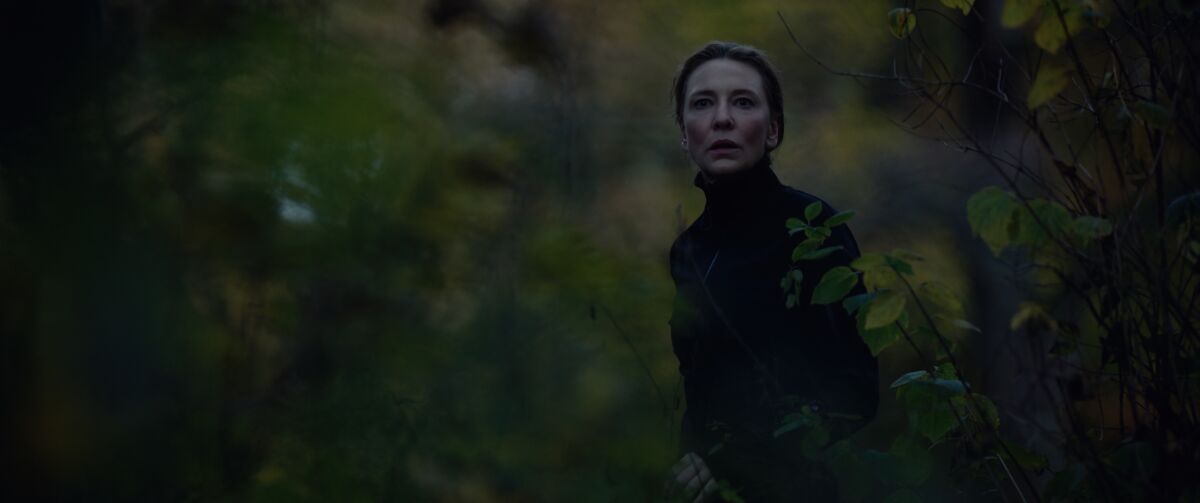
Just as Field was beginning to lose hope, a self-made audition tape arrived out of the blue from a 19-year-old British cellist named Sophie Kauer, who proved both a highly accomplished musician and a natural-born actor. “I said to her, ‘Where did you get the Russian accent?’” says Field. “She said, ‘Oh, some video on YouTube.’”
In composing the film’s score, Guðnadóttir — who in 2020 became the first woman in 2 decades to win the original score Oscar for her work on 2019’s Joker — strove to capture the joys and struggles of music-making itself.
“My job was connecting to the process of making music, rehearsing music, practicing music — the kind of psychological and emotional aspect of that whole process,” says Guðnadóttir, who also wrote a piece of music that Tár composes in the film. “It was interesting to figure out how to wield those very delicate threads of internal music and connect that to the characters in this subtle way.”
Deutsche Grammophon is releasing a concept album that includes Blanchett conducting rehearsals for the Mahler symphony, Guðnadóttir providing instruction to the London Contemporary Orchestra on the score and Kauer, in her professional debut, performing the Elgar concerto.
For all the technical preparation she brought to bear to play Tár, it was music that ultimately brought the character to life. “I like nothing better than when you can dispense with words and explain something through sound,” Blanchett says. “One of the seminal moments for me at drama school was playing Electra in Sophocles’ play and breaking down grief into vowel sounds, feeling what vowel sounds resonated in different parts of your body. Todd’s screenplay affected me on rhythmic level as much as it did on an intellectual level. My way in was through the music.”
